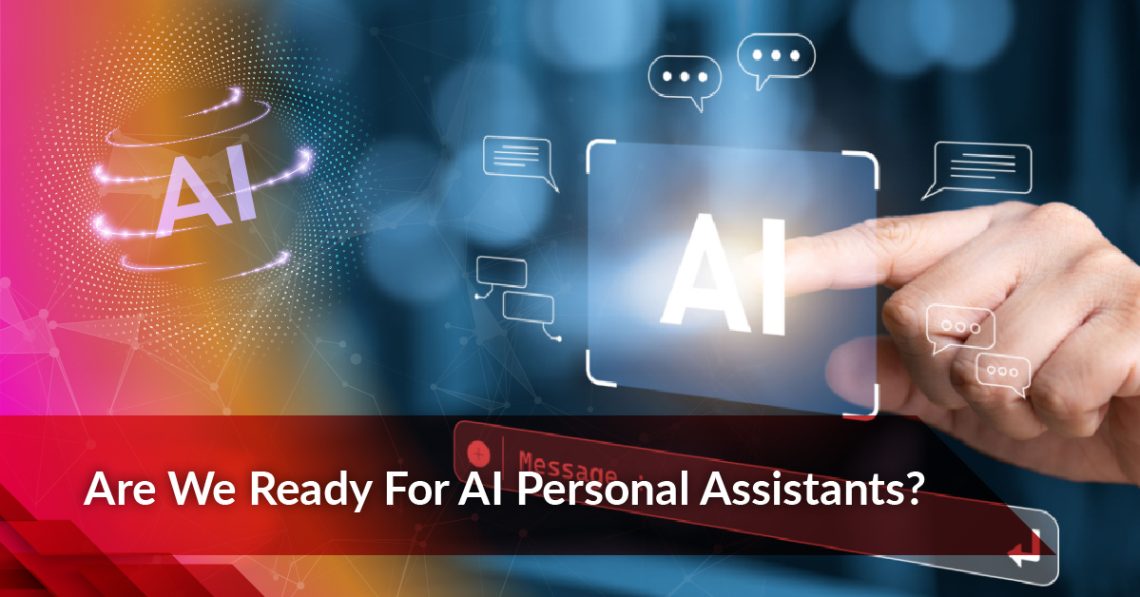In recent years, AI personal assistants like Siri, Alexa, and Google Assistant have become part of our everyday lives, helping us schedule meetings, set reminders, and find quick answers to basic questions. But as AI evolves rapidly, are we truly ready for personal assistants to become even more integrated into our daily routines?
The Current Landscape
AI personal assistants today are primarily used for tasks like setting timers, answering simple queries, controlling smart home devices, and managing schedules. While these functions are convenient, they’re still somewhat limited. The AI behind these assistants relies heavily on pre-defined commands and cannot truly understand complex human emotions or context. While this is enough for basic assistance, the next generation of AI personal assistants aims to go beyond these limitations, becoming more intuitive and personalized.
The Potential of AI Personal Assistants
The potential for AI personal assistants is massive. As natural language processing (NLP) and machine learning (ML) improve, we can expect future assistants to handle more sophisticated tasks. Imagine an AI that can predict your needs based on your habits, anticipate your mood, or even manage more nuanced aspects of your work and personal life.
For example:
- Health management: AI personal assistants could track your health data, recommend exercise routines, remind you to take your medication, and even suggest dietary changes based on real-time data.
- Productivity: They could handle more complex workflows, scheduling tasks based on priorities, and even handling emails, negotiations, and some decision-making processes.
- Social and Emotional Support: A more advanced AI assistant could potentially provide emotional support, understand human emotions, and offer empathetic responses.
The Challenges Ahead
While the future of AI personal assistants looks promising, there are several challenges that must be addressed before we can fully rely on them.
Data Privacy and Security: One of the most significant concerns around AI assistants is the question of privacy. These systems require access to massive amounts of personal data to function effectively. Ensuring that this data is stored and processed securely, and that users’ privacy is respected, is critical to building trust.
Bias in AI: Another challenge is ensuring that AI assistants don’t perpetuate biases. Since AI systems are trained on large datasets, they can sometimes pick up on societal biases present in that data. If not carefully managed, this could lead to biased responses or actions that reflect stereotypes.
Complexity and Understanding Human Context: While AI is becoming more sophisticated, it still struggles with understanding complex human emotions and contexts. Human interaction is nuanced, and developing AI that can interpret and respond appropriately to these subtleties is a significant challenge.
Reliability and Autonomy: For AI personal assistants to take on more complex roles, they need to be highly reliable and autonomous. Users need to trust that the assistant will not make mistakes, especially when managing sensitive information like finances or health data.
Ethical Considerations
The evolution of AI assistants also brings up ethical considerations. As AI becomes more ingrained in our lives, we need to consider how much control we want to give these systems. Should an AI assistant have the power to make decisions on our behalf, or should it remain a tool that assists but doesn’t act autonomously? Additionally, there is the question of accountability. If an AI assistant makes a mistake, who is responsible?
Are We Ready?
While AI personal assistants are becoming more advanced, we may not be entirely ready for them to take on larger roles in our lives just yet. The technology is evolving, but there are still significant hurdles to overcome—ranging from privacy concerns to the complexities of human emotions.
However, the trajectory is clear. With ongoing advancements in AI, NLP, and machine learning, personal assistants will undoubtedly become more capable. As we become more comfortable with the idea of AI handling our personal affairs, it’s not a matter of if, but when we’ll see them transition into more sophisticated roles.
The future of AI personal assistants holds great promise, but for now, we still need to address the ethical, technical, and societal challenges that come with this innovation. For them to become truly integrated into our lives, we’ll need to balance their potential with careful consideration of their impact. The question isn’t just whether we’re ready for AI personal assistants, but how we can ensure they develop in a way that benefits society as a whole.
Are you ready to dive deeper into the topics you love? Visit our website and discover a treasure trove of articles, tips, and insights tailored just for you!





